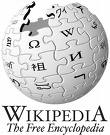I never realized how many people actually have Twitter accounts until I created one myself. Initially, when I plunged into the world of Twitter, I was looking to get quicker and more detailed updates on what is going on in the world. Sure, the news sites I have downloaded as applications on my BlackBerry provide me with news headlines, but I wanted to see if I could find a more interesting and immediate way of getting up to date news.
Once I started exploring the fascinating world of Twitter, I realized I could follow almost anyone or anything that interests me. Hard news no longer became the only reason I used Twitter. I soon realized everyone from celebrities, to athletes, to clothing designers have accounts on Twitter!
While I am using Twitter to gain a more detailed, concise, and immediate understanding of pressing events happening around the world, I am also using Twitter to follow events that are not so important, such as the latest Boston Celtics game or sales for my favorite clothing designers.
Twitter’s short blogging format is teaching its users to write more concisely because of the character limit. This forces its users to get right to the point. I am able to obtain a great deal of information from one “tweet.”
Below are the top ten people I follow on Twitter:

Wall Street Journal
I have the Wall Street Journal application on my BlackBerry, so I started to follow the newspaper on Twitter as well. I like following it on Twitter because it gives me updated news in a sentence or two and also provides me with links to read more about a story, if I want more information.

Paul Pierce
Paul Pierce is on my favorite basketball team, the Boston Celtics. I follow him on Twitter because he gives details about upcoming games, events the Celtics are going to appear at, and chances to win tickets to the games. He also talks about practices the team has, providing me with insight and information about my favorite basketball team!

Lady Gaga
Lady GaGa is one of the most popular and talked about artists right now. She cannot be ignored, her music is constantly playing on the radio and she wears the most outlandish outfits on the red carpet. I follow her on Twitter because she is very eccentric. Her Twitter posts are about her upcoming appearances, song releases, and what she is doing philanthropically. She is just all-around fascinating.

Anderson Cooper
I watch Anderson Cooper on television every night, so it is only natural that I would follow him on Twitter. He posts very frequently about various news topics, some hard news, others soft news. I have recently been following his Twitter more and more because he has been providing followers with information about the devastating situation in Haiti.

Marc Jacobs
Marc Jacobs is my favorite fashion designer. I also wear his perfume and jewelry. Unfortunately, his clothes are very expensive. I follow his company on Twitter because it posts information about new clothing, jewelry, and cosmetics. The best part of its Twitter account is that it posts information about upcoming SALES! The Twitter account always posts links to the new items for sale.

CNN Breaking News
I follow CNN Breaking News because it is a great way for me to get the most updated news as possible. It is right to the point which makes it a fantastic source of news. I am starting to like it better than the CNN application on my BlackBerry because I do not need to read through an entire article to find out what is going on in the world. It also provides me with a link to a longer version of the story.

Kim Kardashian
Kim Kardashian is on many magazine covers, owns her own boutique, is a model, has a television show, and dates football player, Reggie Bush. I follow her on Twitter because I find her to be an interesting person. She posts quotes she likes, information about clothes she is wearing, updates on her boyfriend’s football team, the New Orleans Saints, and different charities she is donating to. I never know what I am going to find when I read her updates!

Campbell Brown
I watch Campbell Brown’s television show, “No Bull, No Bias,” on CNN every night. Her show is very to the point and she gives great political commentary. I follow her on Twitter because she is very to the point when she Tweets. She also gives her feelings about events which shows she is a real person, not just a no-feelings journalist.

Lil Wayne
Lil Wayne is one of my favorite musical artists. I started following him on Twitter because he was recently sentenced to about a year in jail. I figured I could find information about his incarceration through his updates. His sentence has been postponed for the time being, so his Twitter is providing followers with information about what he is doing in the meantime, such as recording songs and music videos.

Larry King
Larry King always has such interesting guests on his television show, “Larry King Live.” I started following him on Twitter because I figured his tweets would be just as interesting. King has definitely not disappointed! Not only do his posts update followers on the news and who is going to be on his show, but they provide followers with his thoughts about events happening all over the world, whether they are important or just interesting to read about.
 With regards to Twitter and other forms of microblogging, I think Shirky is suggesting we should publish as much as and as frequently as possible. I think he wants us to publish a great amount of material, whatever we want, and not worry about whether or not it is important or is going to be read. Then, I think he wants us to go through everything and filter out the unimportant things or things that have no relevance.
With regards to Twitter and other forms of microblogging, I think Shirky is suggesting we should publish as much as and as frequently as possible. I think he wants us to publish a great amount of material, whatever we want, and not worry about whether or not it is important or is going to be read. Then, I think he wants us to go through everything and filter out the unimportant things or things that have no relevance.












